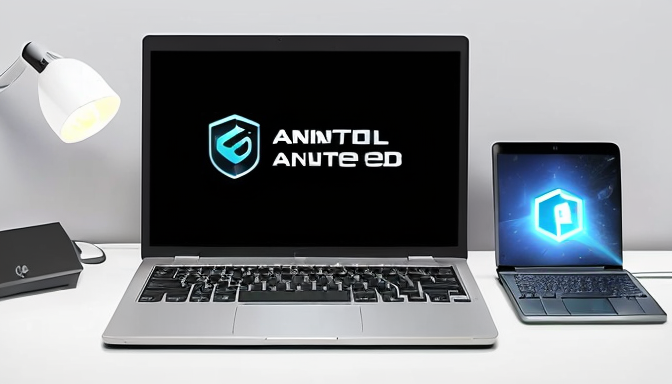In today’s digital age, where our lives are increasingly intertwined with the internet, ensuring online safety has never been more crucial. Imagine navigating a bustling city without a map; that’s what surfing the web without the right tools feels like. Every click can lead you into a dark alley of cyber threats and privacy invasions. So, how can you protect yourself and your personal information while enjoying the vast resources available online? The answer lies in a combination of essential tools and best practices.
First and foremost, staying informed about the latest cybersecurity threats is vital. Cybercriminals are constantly evolving, and so should your defenses. Regularly updating your knowledge on potential risks can be as important as the tools you use. Here are a few key practices to consider:
- Enable two-factor authentication on your accounts for an added layer of security.
- Regularly update your software to patch vulnerabilities.
- Be cautious with public Wi-Fi networks, as they can be breeding grounds for hackers.
By integrating these practices with the right tools, such as VPNs and antivirus software, you can create a robust shield against the myriad of threats lurking online. Remember, your safety is in your hands, and taking proactive steps can make all the difference in navigating the digital landscape securely.
Understanding VPNs and Their Benefits
In today’s digital world, where our lives are increasingly intertwined with the internet, maintaining online privacy has never been more crucial. This is where Virtual Private Networks (VPNs) come into play. Imagine your internet connection as a busy highway filled with traffic. Without a VPN, you’re driving with your windows down, exposing everything to the world. But with a VPN, it’s like rolling up those windows and cruising in a private car, shielded from prying eyes.
So, how do VPNs work? They create a secure tunnel between your device and the internet, encrypting your data along the way. This means that even if a cybercriminal were to intercept your information, all they would see is gibberish. Isn’t that a comforting thought? Here are some of the key benefits of using a VPN:
- Enhanced Security: VPNs protect your data from hackers, especially when using public Wi-Fi networks.
- Access to Restricted Content: With a VPN, you can bypass geo-blocks and access content from different regions.
- Improved Privacy: Your IP address is masked, making it difficult for websites and advertisers to track your online activities.
In summary, a VPN is not just a tool; it’s your personal bodyguard in the vast online landscape. As we continue to navigate through a world filled with cybersecurity threats, investing in a reliable VPN is a smart move to safeguard your personal information and ensure a safer browsing experience.

Antivirus Software: A Necessity for Protection
In today’s ever-evolving digital landscape, antivirus software has become an essential shield against a myriad of cyber threats. Think of it as your personal bodyguard in the vast, chaotic world of the internet. Without it, your devices are like a house without locks—vulnerable and exposed to intruders. But what exactly does antivirus software do? It actively scans your system for malware, viruses, and other malicious software, ensuring that your personal information remains safe and sound.
Imagine waking up to find your bank account emptied or your personal photos shared without your consent. Scary, right? That’s why investing in reliable antivirus solutions is non-negotiable. These tools not only detect and remove threats but also provide real-time protection, meaning they’re always on guard, ready to tackle any potential danger.
Moreover, antivirus software often comes packed with additional features that enhance your online safety. For instance:
- Firewall Protection: Acts as a barrier between your device and unwanted traffic.
- Email Scanning: Checks incoming emails for suspicious attachments or links.
- Web Protection: Warns you about unsafe websites before you click.
Staying informed about the latest cybersecurity threats is crucial. Regular updates from your antivirus provider can keep you one step ahead of cybercriminals. So, don’t wait until it’s too late—arm yourself with the right tools and practices to navigate the internet safely and securely.
Frequently Asked Questions
- What is a VPN and why do I need one?
A VPN, or Virtual Private Network, is like a secure tunnel for your internet connection. It hides your IP address and encrypts your data, making it harder for hackers and snoopers to see what you’re up to online. If you value your privacy, a VPN is a must-have tool!
- How does antivirus software protect my device?
Antivirus software acts as a digital bodyguard for your device. It scans for malicious software, blocks harmful websites, and removes viruses that could compromise your personal information. Think of it as a safety net that keeps your digital life secure!
- Can I use free antivirus software?
While free antivirus software can offer basic protection, it often lacks advanced features. It’s like having a basic lock on your door versus a high-tech security system. For comprehensive protection, investing in a reputable paid antivirus solution is usually worth it!
- Are there any downsides to using a VPN?
Yes, using a VPN can sometimes slow down your internet speed due to the encryption process. Additionally, some websites may block VPN traffic. However, the benefits of enhanced privacy and security often outweigh these minor inconveniences!